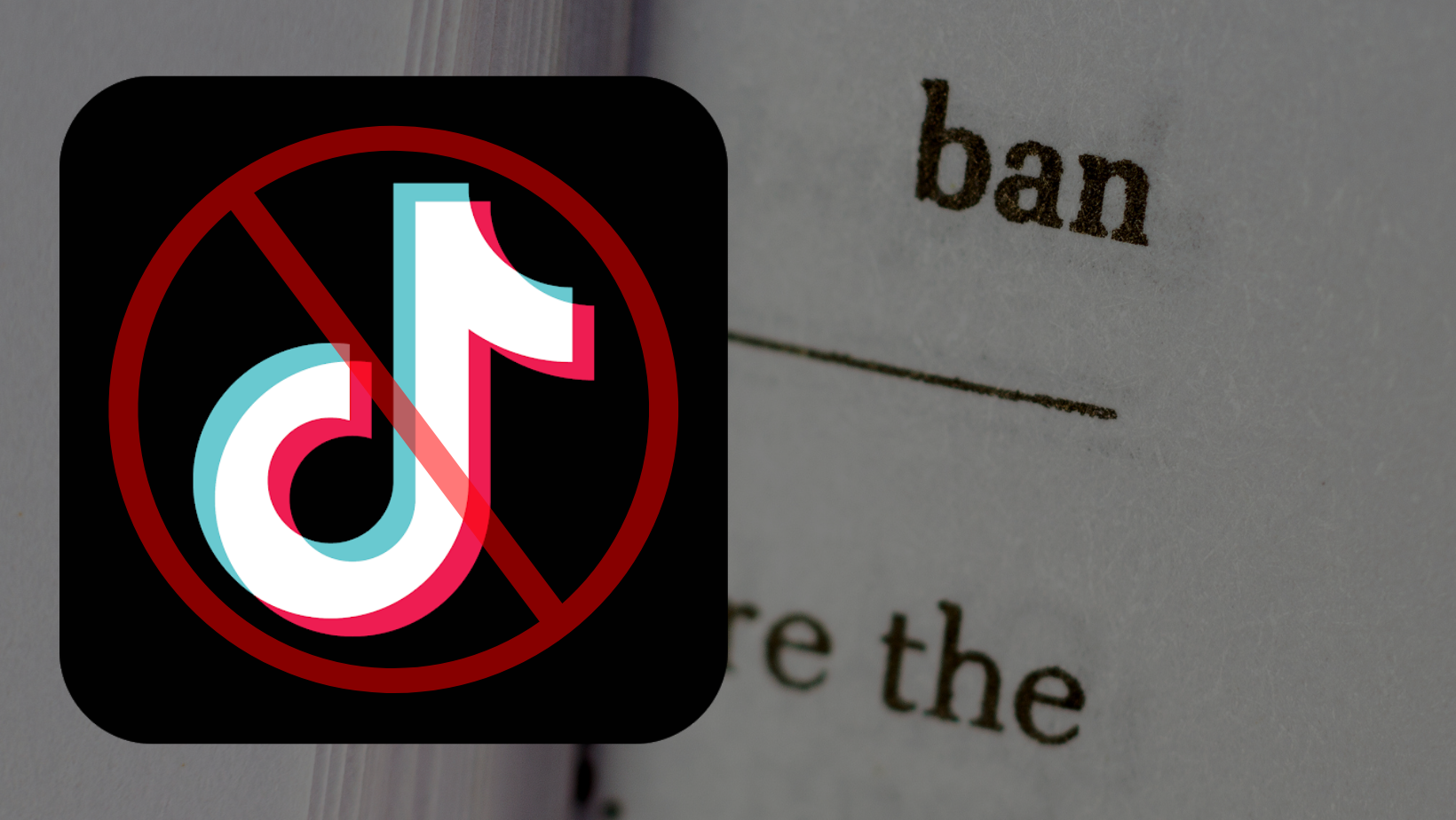As we continue to trudge through unprecedented times, lawmakers across the country have been advocating for bans of all kinds: books, drag shows, and now, TikTok. Lawmakers have cited concerns over potential security threats, as TikTok is owned by Chinese-operated company ByteDance.
The app has already been banned on federal government devices not only in the United States, but also in Britain, Canada, the European Union, France, New Zealand, and Australia. TikTok CEO Shou Zi Chew testified on March 23rd before Congress to discuss the app’s relationship to ByteDance and the Chinese government’s potential influence over the app. While Chew repeatedly expressed that TikTok is trying to distance itself from its parent company and that U.S. data is stored on U.S. servers, congressional representatives made it clear that Chew’s statements were unsatisfactory according to their standards.
Critics of these proposed bans have mentioned one item that’s been noticeably excluded from the conversation of bans in the US: guns. Despite the fact that guns are now the leading cause of death in children and adolescents, lawmakers haven’t made any legislation for gun control. In fact, Republican Tennessee Representative Tim Burchett stated that Congress won’t fix the issue of mass shootings and that banning guns won’t be effective enough because “criminals are going to be criminals.”
With human rights issues on the line throughout the country, critics of the TikTok ban are infuriated that representatives of both political parties could only come together to ban an app instead of passing legislation to prevent gun-related deaths.
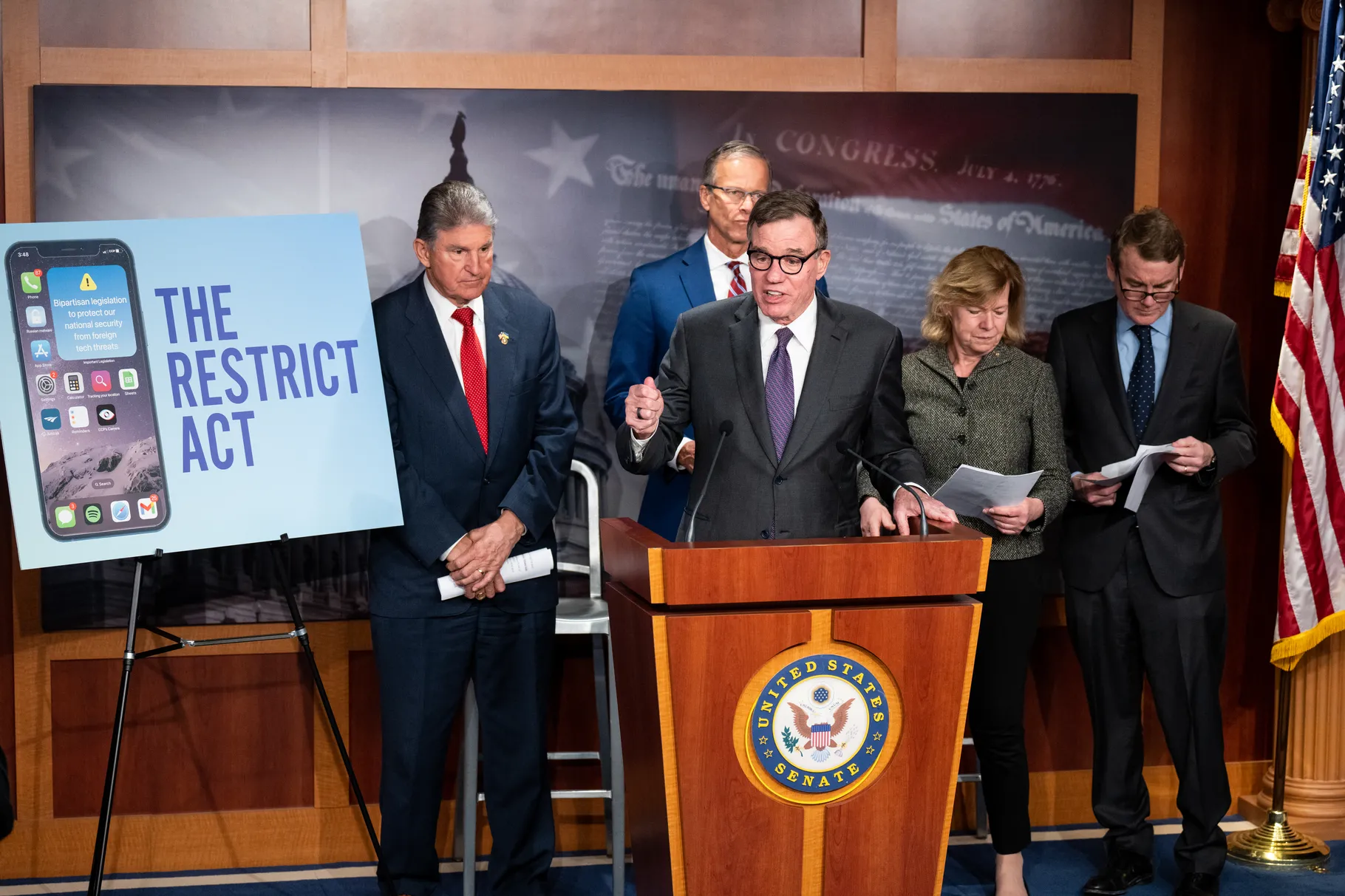
Democratic Senator Mark Warner (VA) and Republican Senator John Thune (SD) have introduced the RESTRICT Act, which stands for Restricting the Emergence of Security Threats that Risk Information and Communications Technology. It has become the leading legislation for a potential TikTok ban and is widely supported by the White House, as it gives the government control and access to what we see online and will criminalize the use of a virtual private network (VPN) to access TikTok if the ban goes through. However, civil rights organizations like the American Civil Liberties Union (ACLU) are concerned about this bill and its direct violation of the freedom of speech that is granted to us by the First Amendment.
While most people know TikTok for the countless dances and for propelling influencers like the D’Amelio sisters, Addison Rae, Alix Earle, and Monet McMichael to stardom, it has also played a large role in the success of small businesses. Food reviewer Keith Lee, who has amassed over 10 million followers on the app, has helped dozens of restaurants in the Las Vegas area gain thousands of customers after initially making videos that they were in danger of closing due to low sales.
While Lee’s reviews are mostly positive, he won’t shy away from informing viewers that he doesn’t like a certain dish, which has allowed him to gain a rapport with his audience. Local clothing stores (both online and brick-and-mortar locations) across the country have also seen increased sales from promoting their businesses on the app.
Meg Olenowski, 37, owns Sisters Denville, a family-owned boutique in her hometown of Denville, NJ that will be in business for 10 years this May. She says “it’s a LONG story of how we opened, but my sister and I wanted to open a business together and our mom had a gift shop.”
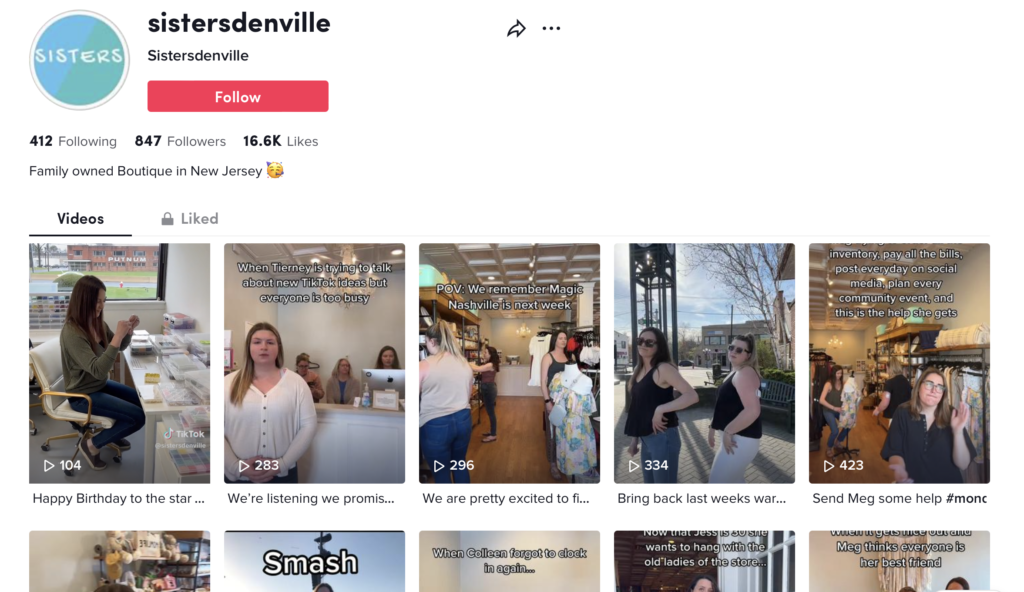
Olenowski says she uses TikTok daily for her business. “We generally make videos that highlight our store and our employees’ personalities. We have found these types of videos make us more relatable to our customers and invite you to come and see us.” In fact, she says it, “has made content creation SO much easier for us. Short form videos are exactly what our customers want to see.” With videos featuring the staff as well as the store’s products, the Sisters Denville TikTok account allows potential customers to know about the business on a more intimate level.
When asked about the potential TikTok ban, Olenowski was quick to point out the app’s large reach. With more than 150 million American TikTok users, there’s no denying that the app has greatly impacted people of all ages. “TikTok is here, and it’s massive. Grandparents are on TikTok; we think it can be a positive when used in the right way. I don’t think it will get banned.”
Olenowski believes a TikTok ban will hurt both small businesses and content creators. “Some businesses have really thrived and grown their audience through TikTok. Other stores like ours have been able to use TikTok to stay up on trends and use it to leverage our other platforms,” she states. “I think of creators like Anna Sitar, whose TikTok has created such a platform and allowed her to share what a day in her life looks like. It’s the first time in my lifetime that I can remember ‘everyday’ people having such an audience.”
We want to hear from you! Please help us better serve you and our community by taking this short survey.
Part of TikTok’s massive appeal is that people of all backgrounds can gain a large following on the app. Most influencers who have gained notoriety on the app were students or originally worked traditional 9-5 jobs when they started posting on the app. However, users have noted that people of color, specifically Black creators, are often “shadowbanned,” meaning that their videos don’t get shown on the For You Page as much as white creators who make the same types of videos. Unfortunately, this type of “banning” isn’t always obvious to the user, since they’re still able to post and engage with other creators, but “shadowbanned” users often notice that the engagement on their posts is much lower than it used to be.
While TikTok has its issues with potential data threats, prioritizing certain creators over others, and spreading the message that certain body types and features are trendy or desirable, other popular social media apps like Facebook, Instagram, and Twitter also have the same issues. Facebook recently made headlines after settling a $725 million data privacy lawsuit involving consulting firm Cambridge Analytica, as millions of users had their personal information accessed by outside sources. Twitter also had a massive data breach recently, with over 235 million email addresses being leaked in an online hacking forum.
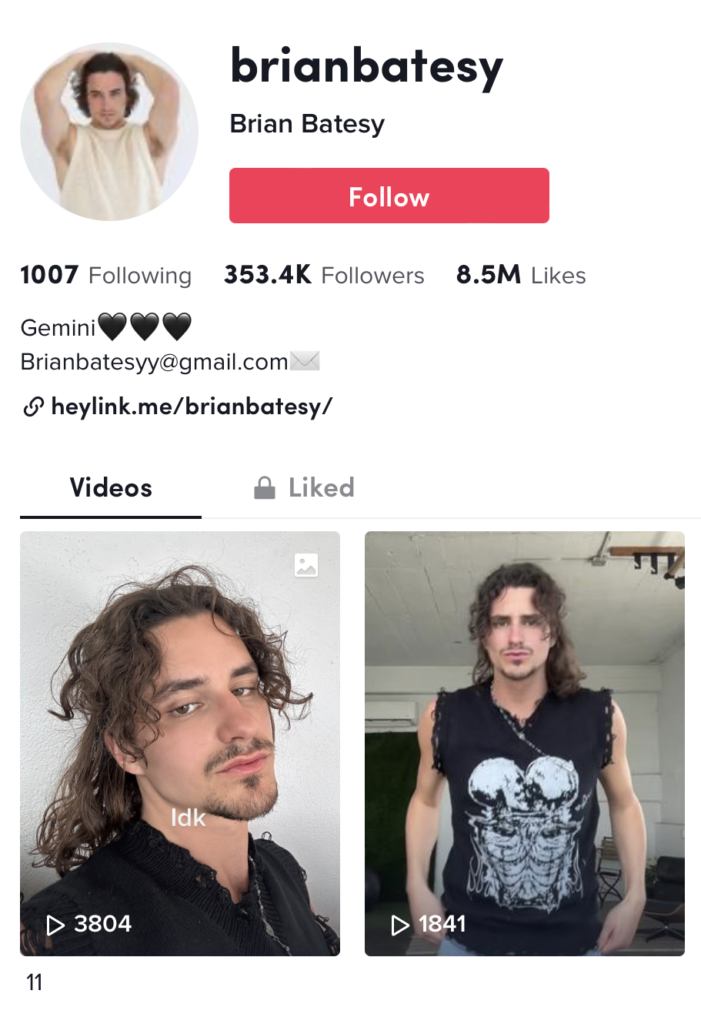
Brian Batesy, a 23-year-old content creator from Boston, Massachusetts, says he started using TikTok during the summer of 2019 when the app mainly contained lip-syncing and dancing videos. In addition to making these videos on his own TikTok account, he also makes body positive, sex positive, and LGBTQIA+ related content.
After gaining a large following, Batesy started getting opportunities to appear on reality shows and various brand deals. “I got all of my work from TikTok. I was on MTV’s Date My Playlist and Paramount+’s Love ALLways because of TikTok. It’s always been a significant way for me to get influencer deals and income.”
Despite the fact that he has relied on TikTok for work, Batesy is an advocate for the proposed TikTok ban. “It’s boring and toxic; I miss when people danced and didn’t have conversational podcasts. It’s changed so much for the worse; people are getting mean and on edge, said Batesy. However, he does believe it will have an effect on small businesses and content creators. “The organic and fun marketing with large reach will be jeopardized, but another app will come in no time.”
ByteDance has already taken this thought into consideration, as they created a new app called Lemon8, which has been described as a combination of Pinterest and Instagram. With an algorithm similar to TikTok, it’s no surprise that it started gaining popularity and became the second most downloaded lifestyle app in the United States in the past month. However, this app will most likely also face the same scrutiny as TikTok, since it is owned by the same company.
Regardless of people’s feelings on TikTok, there is no doubt that the app will not go down without a fight. TikTok users across the country have made countless videos informing people of the effects of the potential ban, the RESTRICT Act as a whole, and ways to contact each state’s congressional representatives. With hundreds of millions of Americans relying on TikTok for revenue, information, representation, and overall accessibility, a ban would be detrimental to so many demographics.
Zoe Oprecht, of Westfield, Massachusetts, owns Set Apart Creations, a small business that sells handmade jewelry. “I have been utilizing TikTok for the promotion of my small business since January 2022. I create content to promote my online shop, post tutorial videos, advertise soon to be available, and available products as well as supply hauls purchased for my business,” said the 19 year-old.
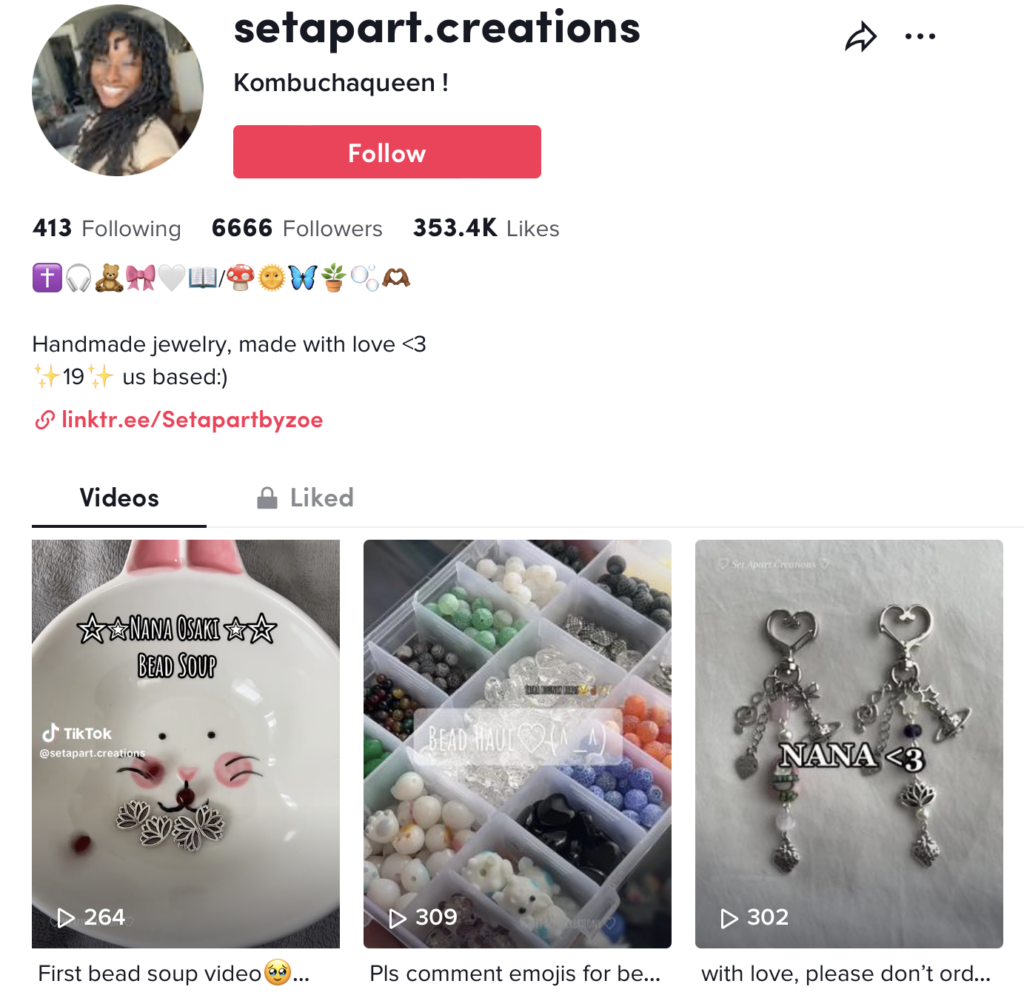
“As a small business owner in this generation, I rely on TikTok tremendously, utilizing how widespread it can be; just one viewer is a potential customer, and I personally receive a high majority of my orders and supporters through TikTok due to its high level of exposure, expressed Oprecht.
While Oprecht is opposed to a TikTok ban, she agrees that there should be stricter guidelines on what content is shown to young, impressionable viewers. “News of the potential ban of TikTok not only caused worry and concern for myself but also for my fellow small businesses owners who use TikTok to promote their shops. I don’t believe it’s necessary to ban it for everyone, but I do believe age guidelines are important in order to prohibit young viewers from being exposed to inappropriate content.”
“TikTok being banned could potentially be the downfall of many small businesses,” Oprecht says. “Though there are other social media platforms, TikTok is used more frequently than any other platform; and has the highest potential to go viral. The loss of such a tool truly could be detrimental for small businesses. It would lower sales activity and exposure, which could cause discouragement and the closure of small businesses worldwide.”
While a potential TikTok ban won’t forcibly remove the app off your phone, the app would no longer be receiving updates, making the app lose all functionality. There’s no set date on when this ban might take effect, but it seems as though Congress wants to move forward with this matter sooner rather than later.
As the future of TikTok (and the internet at large) remains uncertain, content creators and small business owners are scrambling to find suitable alternatives for their ventures. Even though Instagram is now competing with TikTok through the incorporation of Reels, users have been hesitant to rely on Instagram for their businesses because their posts are often not shown in people’s feeds due to the algorithm.
Twitter, on the other hand, no longer has its famous blue legacy checkmarks for notable figures and organizations and now requires users to pay $8 a month for Twitter Blue if they wish to keep it. This method not only prevents people from knowing if the account they’re interacting with is really the person they think, but it also removes a sense of trust that users initially had when using the platform. Instagram and Facebook have unsurprisingly launched a similar program where users can pay to be verified for nearly double the price, but users who were initially verified still have their checkmarks.
Will this be the end of social media as we know it, or will there just be another set of apps that we’ll all eventually become addicted to? We’ll just have to wait and see.
We want to hear from you! Please help us better serve you and our community by taking this short survey.

